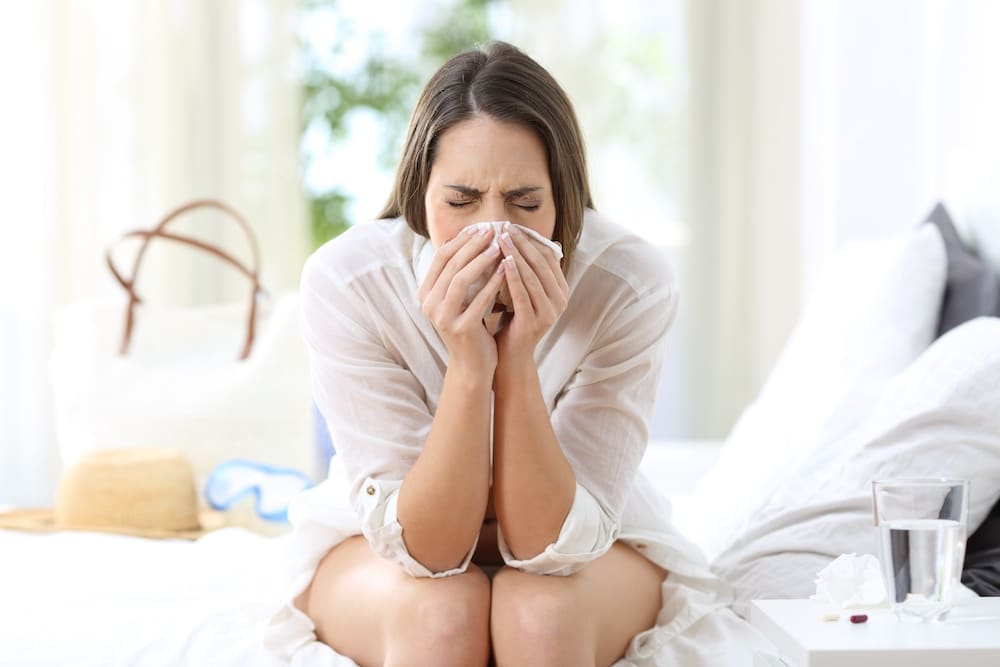Traveling can be exciting, refreshing, and full of new experiences. However, it also brings unique challenges for individuals with allergies, especially when staying in hotels. Many people don’t realize how common it is to experience allergy symptoms during travel. New environments often contain unfamiliar allergens such as dust mites, mold, pet dander, or harsh cleaning chemicals—all of which are common in hotel settings. Knowing how to recognize and reduce these triggers can help make your trip smoother and healthier. It’s important to feel comfortable and healthy when you’re away from home, especially as an allergy sufferer. Here is what you need to know about allergies and hotels when traveling, particularly concerning managing symptoms related to Allergies and Hotels.
Why Do Hotels Trigger Allergies and Hotels?
Understanding the relationship between allergies and hotels is crucial for a comfortable stay, particularly in light of Allergies and Hotels.
By understanding the factors contributing to allergies and hotels, travelers can take proactive steps to mitigate their allergy symptoms.
The connection between allergies and hotels often starts with what you can’t see. Hotel rooms may appear clean, but hidden allergens can still linger in carpets, curtains, mattresses, and HVAC systems. Even luxury accommodations may not be allergy-proof unless they specifically advertise hypoallergenic rooms. In addition to dust mites and pet dander, hotel rooms may use strong cleaning products or air fresheners that contain chemicals and fragrances. These can be irritants, particularly those with allergic asthma or chemical sensitivities.
If you’re sensitive to environmental triggers, it’s essential to understand the relationship between allergies and hotels before booking your stay.
Allergies and Hotels: Tips for Before You Arrive
Planning is one of the best ways to reduce the potential for allergy symptoms. Consider the following steps before you check in:
- Research allergy-friendly hotels. Many hotel chains now offer hypoallergenic rooms with features like air purifiers, fragrance-free cleaning protocols, and encased mattresses and pillows.
- Call the hotel directly. Ask specific questions about their cleaning practices and whether they accommodate allergy-sensitive guests.
- Request a pet-free room. Even if the hotel allows pets, they may offer designated rooms free from these allergens.
- If necessary, bring your own bedding. For severe allergies, a travel pillowcase or bedding from home can help you avoid reactions.
Being proactive can significantly reduce your risk of allergy flare-ups while traveling.
What to Pack for Allergy Control on the Go
Packing the right items can help you manage your symptoms more effectively:
- Over-the-counter allergy medications like antihistamines or nasal sprays
- Saline nasal rinse to clear allergens from the nasal passages
- Protective pillow or mattress covers for added protection in hotel beds
- Unscented wipes or travel-friendly cleaners to remove allergens from surfaces
It’s essential to create an “allergy travel kit” customized to your symptoms. It’s a simple way to stay prepared, even in unfamiliar environments.
During Your Stay: Keeping Allergies Under Control
Once you’ve checked in, there are a few things you can do to reduce your exposure to triggers when staying in hotel rooms when traveling:
- Keep the room ventilated, but avoid opening windows if pollen counts are high.
- Wipe down surfaces like remote controls, nightstands, and headboards.
- Avoid using hotel-provided toiletries if you have skin sensitivities.
If you start to experience symptoms, don’t wait for them to worsen. Take your medication, drink plenty of water, and avoid any known triggers until you begin to feel better. If necessary, ask to change rooms if your condition worsens.
When to Seek Help from an Allergist
If your allergies become severe while traveling or persist after your return, it may be time to consult an allergy specialist. Understanding the relationship between allergies and hotels can be tricky, but the board-certified allergists at McGovern Allergy and Asthma Clinic are here to help. They can provide personalized travel advice, prescribe medications suited to your needs, and work with you to create a long-term allergy management plan.
Traveling with allergies doesn’t have to be stressful. With preparation, awareness, and the proper support, you can enjoy your trip without letting allergy symptoms interfere with your plans.

